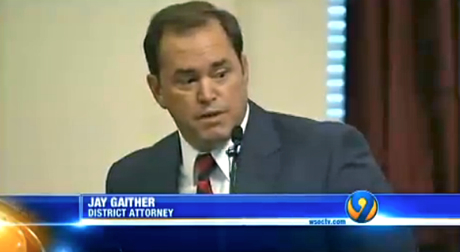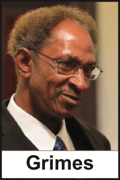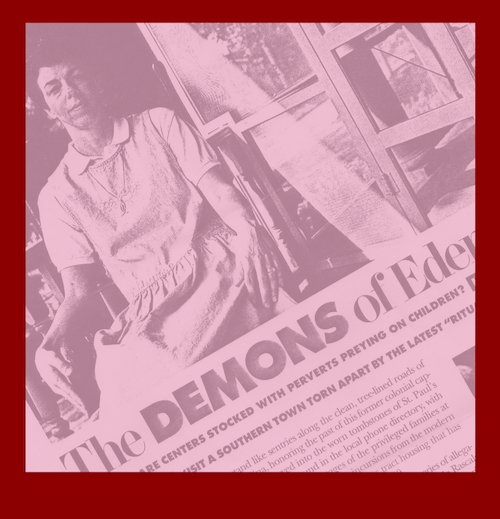Rascals case in brief
In the beginning, in 1989, more than 90 children at the Little Rascals Day Care Center in Edenton, North Carolina, accused a total of 20 adults with 429 instances of sexual abuse over a three-year period. It may have all begun with one parent’s complaint about punishment given her child.
Among the alleged perpetrators: the sheriff and mayor. But prosecutors would charge only Robin Byrum, Darlene Harris, Elizabeth “Betsy” Kelly, Robert “Bob” Kelly, Willard Scott Privott, Shelley Stone and Dawn Wilson – the Edenton 7.
Along with sodomy and beatings, allegations included a baby killed with a handgun, a child being hung upside down from a tree and being set on fire and countless other fantastic incidents involving spaceships, hot air balloons, pirate ships and trained sharks.
By the time prosecutors dropped the last charges in 1997, Little Rascals had become North Carolina’s longest and most costly criminal trial. Prosecutors kept defendants jailed in hopes at least one would turn against their supposed co-conspirators. Remarkably, none did. Another shameful record: Five defendants had to wait longer to face their accusers in court than anyone else in North Carolina history.
Between 1991 and 1997, Ofra Bikel produced three extraordinary episodes on the Little Rascals case for the PBS series “Frontline.” Although “Innocence Lost” did not deter prosecutors, it exposed their tactics and fostered nationwide skepticism and dismay.
With each passing year, the absurdity of the Little Rascals charges has become more obvious. But no admission of error has ever come from prosecutors, police, interviewers or parents. This site is devoted to the issues raised by this case.
On Facebook
Click for earlier Facebook posts archived on this site
Click to go to
Today’s random selection from the Little Rascals Day Care archives….
Click for earlier Facebook posts archived on this site
Click to go to
Today’s random selection from the Little Rascals Day Care archives….
‘You don’t just brush off 24 years of a man’s life’
 Oct. 12, 2012
Oct. 12, 2012
The exoneration of Willie Grimes warms my heart, and not just because the 66-year-old parolee has become “Free at last!” after a 1987 rape conviction in Hickory.
As often lamented on this site, prosecutors such as those in the Little Rascals case simply refuse to acknowledge, much less take responsibility for their mistakes.
In the Grimes case, however, District Attorney Jay Gaither told the Innocence Inquiry Commission panel, “The State cannot argue any conclusion other than for innocence in the case of Willie Grimes,” then rested the state’s case and sat down.
Afterward, he explained that “In this week’s presentation of evidence we counted no less than 35 pieces of evidence and testimony in support of innocence…. The fact that the three-judge panel was so emphatic in its conclusion and decision only strengthens the confidence I have in our decision.”
 But Gaither went even further, on camera and rebroadcast by WSOC-TV: “On behalf of the district attorneys of North Carolina, I want to offer an apology to Willie Grimes.”
But Gaither went even further, on camera and rebroadcast by WSOC-TV: “On behalf of the district attorneys of North Carolina, I want to offer an apology to Willie Grimes.”
Yes – an apology!
Although the Grimes conviction occurred long before Gaither took office in 2002, DAs often feel compelled to defend even their predecessors’ performance. As former New York prosecutor Bennett Gershman has observed, “The prosecutor can’t do anything that undermines the public’s confidence in the prosecutor’s office. Once the public begins to doubt that prosecutors convict guilty people – that there may be mistakes in the system – that undermines confidence in the prosecutor….”
Gaither took the opposite approach. “You don’t just brush off 24 years of a man’s life and go on,” he told me Wednesday. “A series of events denied Mr. Grimes a fair trial. Closure was required.
“I wanted the public, as well as Mr. Grimes, to know that we weren’t just beat down, but that we were actually sorry.” (Click Gaither’s picture above to watch the broadcast that includes video of the courtroom apology.)
Also notable is how Gaither framed his apology: “I was speaking not so much for district attorneys as individuals, as for the State of North Carolina…. Only 44 of us have that right to say ‘The state says….’ ”
In this case, that right was admirably used. Would that it happened more often.
In 1993, predicting a historic marker – and more
 June 18, 2015
June 18, 2015
Given my thoroughly unsuccessful attempt to persuade the State of North Carolina to erect a historic marker recalling the Little Rascals Day Care case, I had to laugh at discovering this 1993 letter to the Elizabeth City Daily Advance:
“Dear Editor:
“The year is 2022. The town of Edenton, last stop on the witch-hunt trail beginning in Salem, Mass., with an intermediate stop at Joe McCarthy’s office in Washington, D.C., has finally decided to build a historic marker. (It will be) directly across the street from the town’s $4 million tour center, where people gather from across the nation (indeed, from around the world) to see and feel and learn about the Edenton witch hunts of 1990-1993….
“It is here where the walking tours start, where the T-shirts are sold and where the buses disgorge their curious cargo….”
Letter writer David W. Tucker of San Francisco – who in all likelihood had recently watched “Innocence Lost: The Verdict” – expressed confidence that the marker would eventually be approved, even if not by 2022:
“The only question is whether the marker will speak of the community’s collective shame
or, instead, of the individuals and groups of good will and courage who brought lasting honor to Edenton by rescuing Bob Kelly, Dawn Wilson, the Twiddy family and the others from the nightmare that fear, hate and ignorance visited upon them….”
X-factor in child-witnesses’ accounts: TV
Aug. 9, 2013
“(One) area of uncertainty is the extent to which sexual knowledge is learned by young children through exposure to either explicit or sexually suggestive materials on television, video and movies. Studies indicate that children watch from 14 to 23 hours of television a week with the highest level among preschoolers. About a third of them do so without parental involvement in what they watch.”
– From “Evidence Issues and ‘Lessons’ from State v. Kelly: Litigation of Allegations of Child Sexual Abuse” by Jeffrey L. Miller and W. Michael Spivey, presented at the 6th annual North Carolina Criminal Evidence Seminar, UNC School of Law (April 16, 1993)
Among the “suggestive materials” that aired during the early days of the Little Rascals allegations: “Do You Know the Muffin Man?”
What assistant AG ‘found interesting’ about Elle article
 Nov. 26, 2019
Nov. 26, 2019
I’ve previously cited here and here Elle magazine’s deeply reported 1993 article on the Little Rascals case. You can read it here.
But I had somehow overlooked this response to Greensboro journalists Edward Cone and Lisa Scheer from assistant attorney general Bill Hart. It has not aged well.
Dear Ed and Lisa,
I have read your recent article in Elle Magazine, “The Demons of Edenton.”
I found it interesting that you chose to leave out the fact that Chris Bean, now a District Court Judge, had initially represented Bob Kelly as his lawyer, until he found out that his son had been abused.
I also found it interesting that you chose not to include the fact that Bob Kelly’s jury had the full benefit of the experience, knowledge, and wisdom of both Maggie Bruck and William Kenner through their testimony at his trial.
Notably absent from your article was any balancing psychological viewpoint to the Bruck/Kenner/Ofshe propaganda. You had access to the testimony of Mark Everson, a psychologist who testified for the state at Bob Kelly’s trial, but did not quote him. You criticized Roland Summit, but did not quote him….
Sincerely,
William P. Hart
Special Deputy Attorney General
I won’t use this post to address all of Hart’s claims, but….
– Chris Bean’s role in the case, far from being culpatory for Bob Kelly, actually provoked stinging criticism from the North Carolina Court of Appeals. “This boils down to the most fundamental questions of fairness,” Judge Gerald Arnold said. “When you have an attorney testifying that ‘I was Mr. Kelly’s attorney and I believed in him very strongly until I learned the truth, that is to say that he’s guilty, and then I was shattered.’ How can there be more prejudicial, stronger evidence put before a jury than to have a former attorney, the defendant’s attorney say that?” Further, Bean was among those parents whom prosecutors inappropriately but persuasively presented as de facto experts on child psychology.
– Mark Everson, UNC psychologist, was tragically influential with a “coherent package” of misconceptions he clung to long after they had been exposed by updated research. And of course there’s his jaw-dropping “where there’s smoke there’s fire” argument….
– Los Angeles psychiatrist Roland Summit, a key player in the McMartin Preschool trial, tried too late to shed responsibility for the many defendants wrongfully convicted by his “child sexual abuse syndrome” theory.
Bill Hart’s letter didn’t mention it, but I have to wonder whether this was the Elle passage that actually got under his skin most annoyingly:
“[Hart] is emotionally involved in the Little Rascals case to a startling degree. Last year he married Patricia Kephart, the mother of a Little Rascals child, who Hart had become romantically involved with during his prosecution of the case. ‘If anything it’s made it more difficult on me,’ he says of his entanglement in the investigation.”
There are huge and obvious problems with Hart’s behavior, but his “difficult” personal consequences don’t rank high on the list.
![]()











0 CommentsComment on Facebook